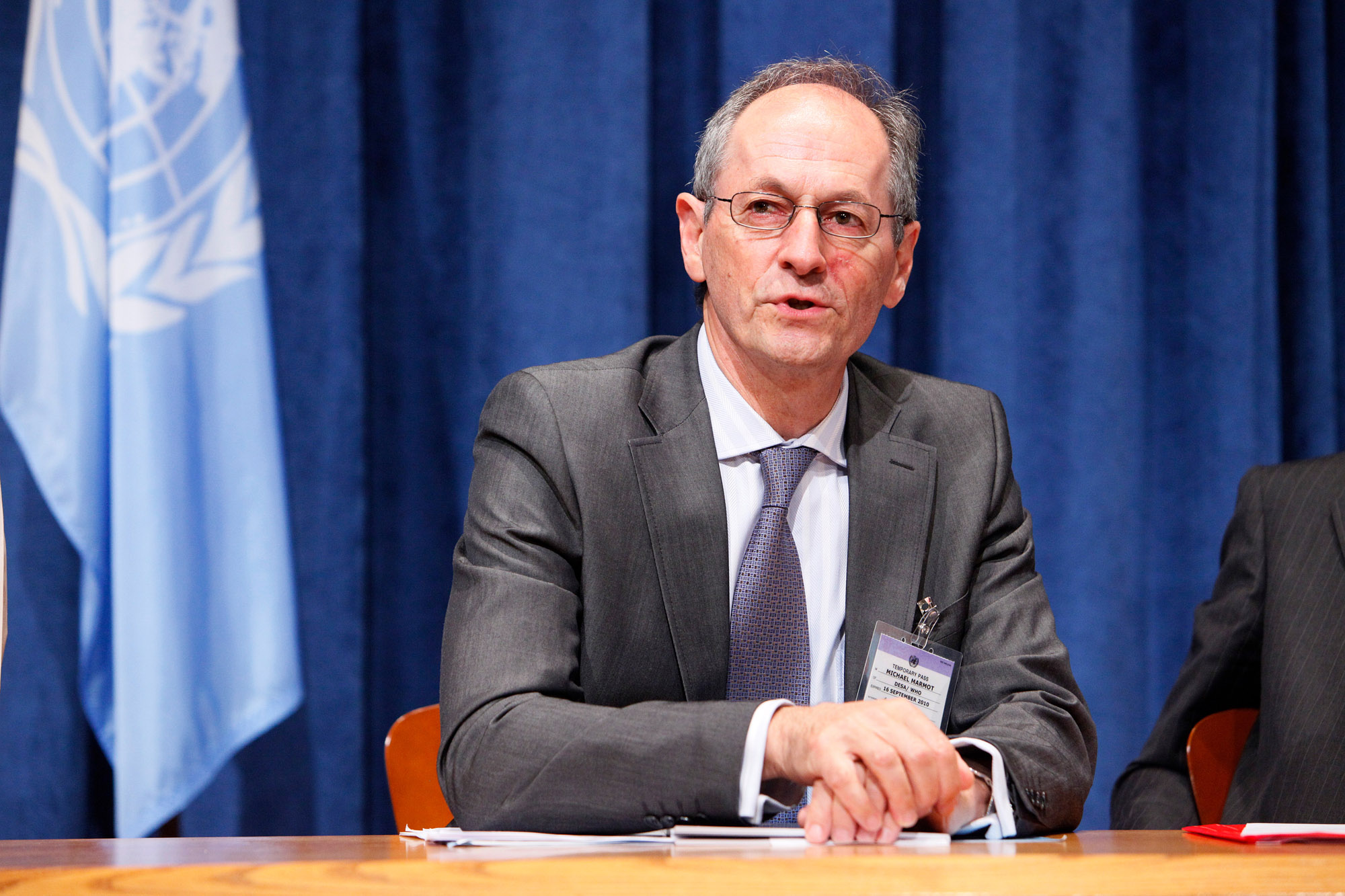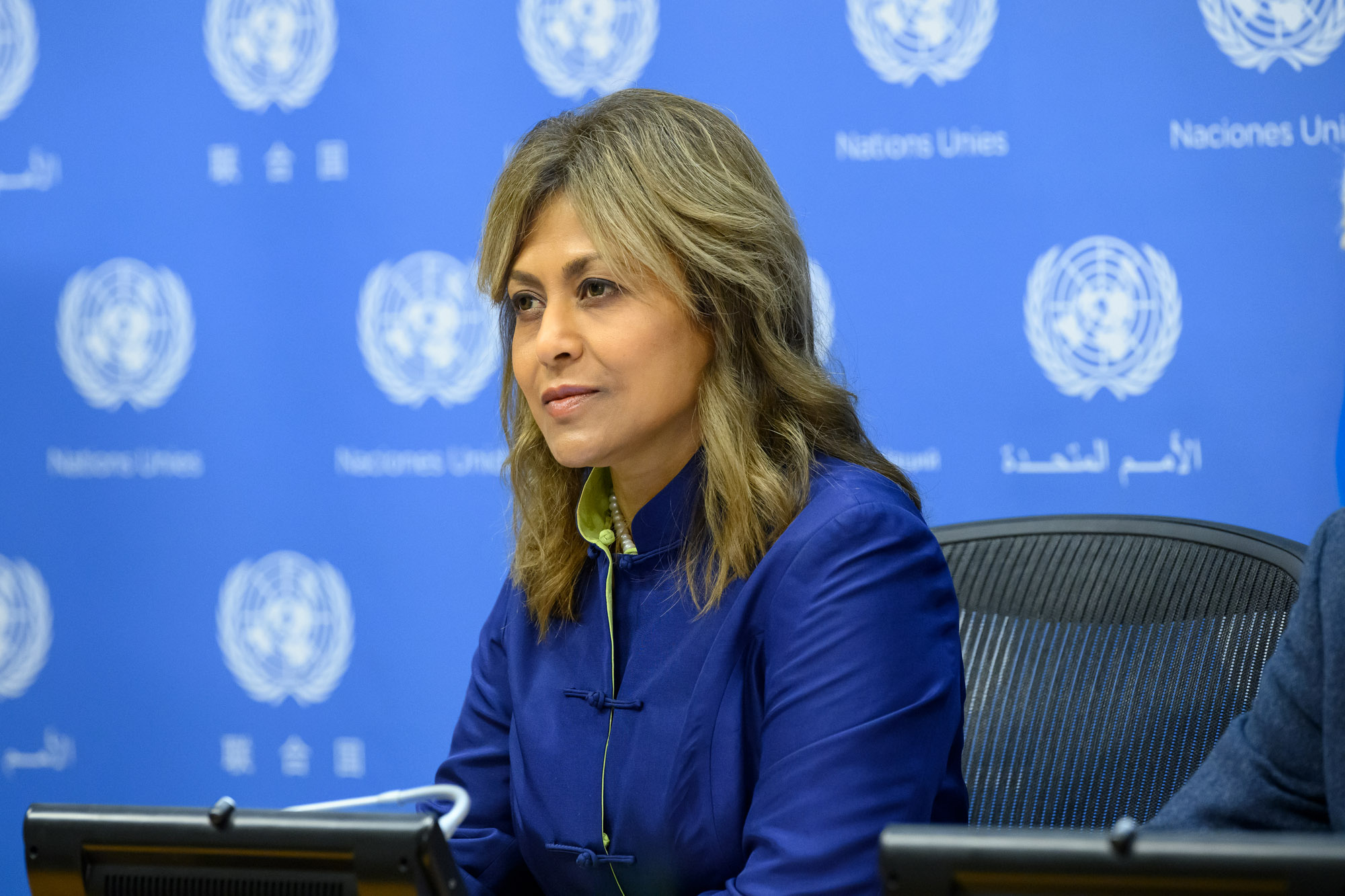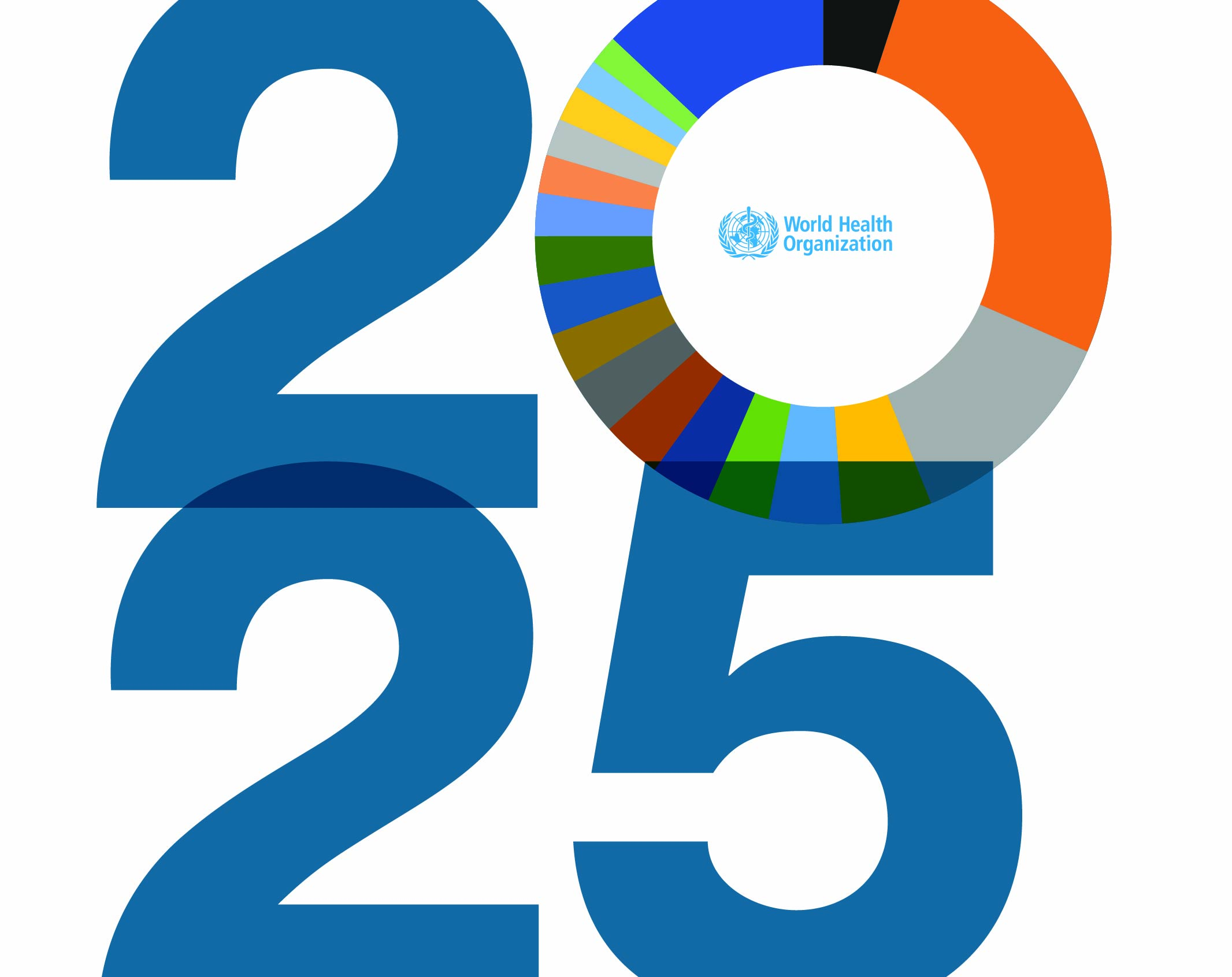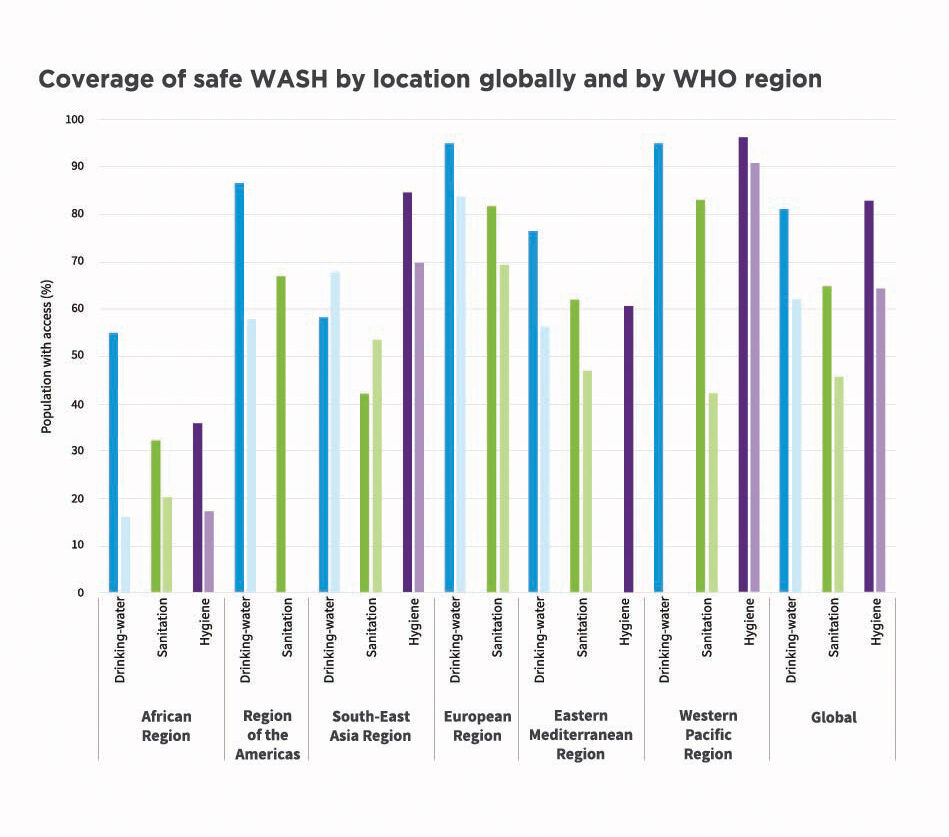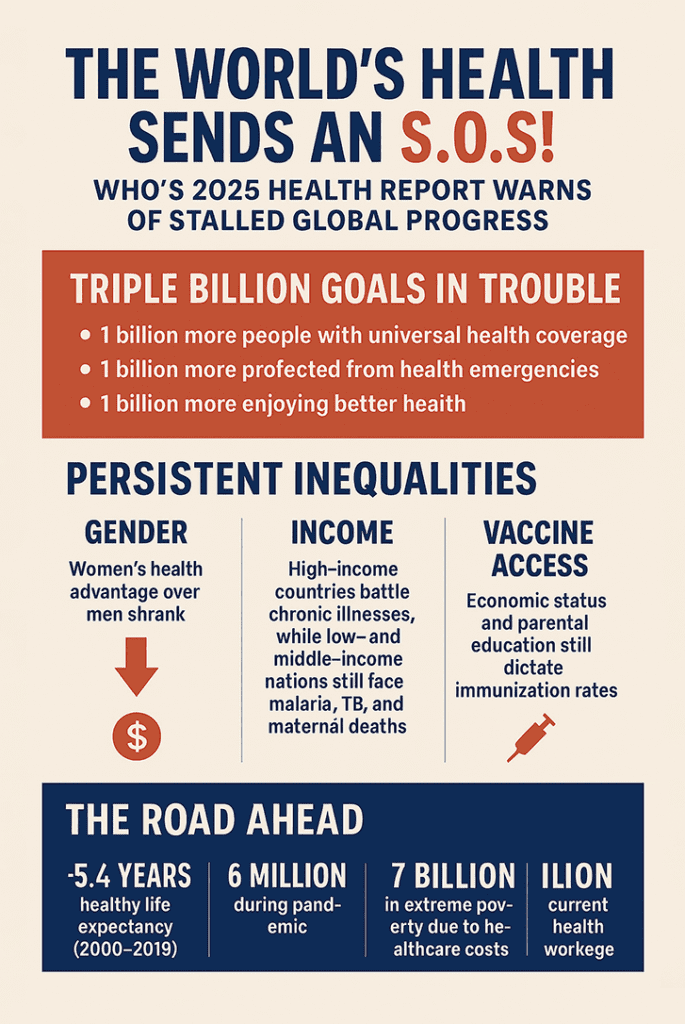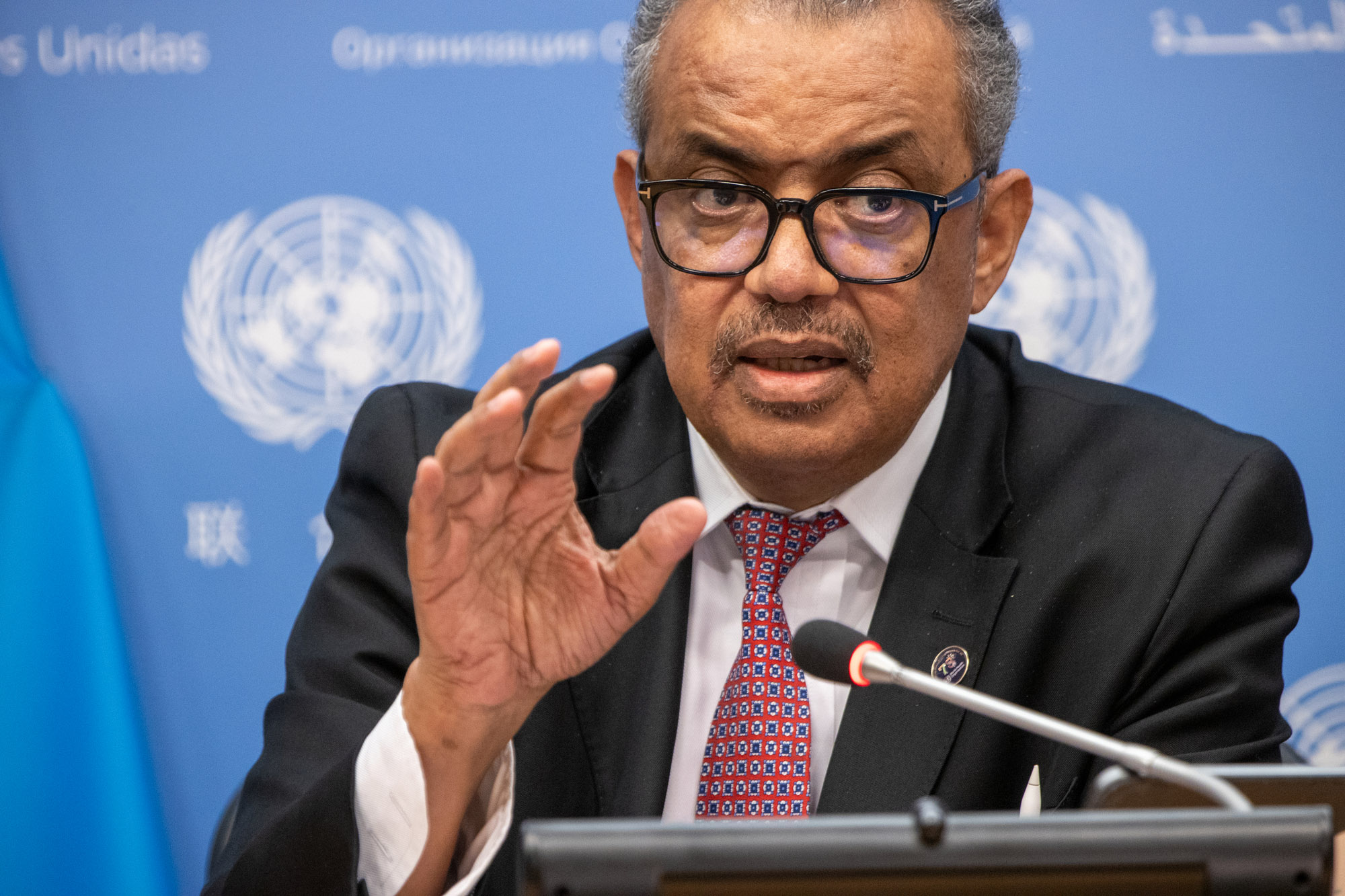Between 2019 and 2021, global life expectancy fell by 1.8 years, the steepest decline in decades.
The World Health Organization’s 2025 data reads like a warning siren: the world’s health gains are stalling, and the 2030 goals are slipping further out of reach. Rising anxiety and depression during the pandemic also erased nearly six weeks of healthy life expectancy, underscoring the fragility of progress.
Progress mixed as targets stall
The numbers tell only part of the story. “Behind every data point is a person—a child who didn’t reach their fifth birthday, a mother lost in childbirth, a life cut short by a preventable disease.… Health progress is slowing. Every government has a responsibility to act, with urgency, commitment, and accountability,” said WHO Director-General Dr. Tedros Adhanom Ghebreyesus. WHO’s “triple billion” framework illustrates the uneven gains. One target has been achieved: 1.4 billion more people are living healthier lives, supported by declines in tobacco use, cleaner air, and better access to water and sanitation. But the momentum fades on the other two fronts. Just 431 million people gained access to essential services without financial hardship, and only 637 million are better protected from health emergencies—far below the one-billion mark for each. The report also notes that between 2019 and 2021, global life expectancy fell by 1.8 years, marking the sharpest reversal in decades.
Setbacks in mortality and immunization
Those gaps are felt most acutely in stalled maternal and child mortality declines, and in fragile health systems that struggled to maintain basic services. Childhood vaccination coverage, including the third dose of the diphtheria-tetanus-pertussis vaccine, still lags behind pre-pandemic levels. At the same time, premature deaths from noncommunicable diseases continue to climb, while air pollution and mental health disorders weigh heavily on healthy life expectancy.
A call for better data and delivery
For WHO officials, turning the tide depends on more than funding. It requires evidence and accountability. “This report shows that the world is failing its health checkup. But countries have shown that rapid progress is possible.… With speed, scale, and smart investments, every country can deliver measurable gains,” said Dr. Samira Asma, Assistant Director-General for Data, Analytics and Delivery for Impact.
Shortages threaten essential services
But data alone cannot close the gap without people to carry it forward. WHO projects a shortfall of 11.1 million health workers by 2030, with nearly 70% of that gap in Africa and the Eastern Mediterranean regions already stretched thin. “Strong health systems rely on strong health information. Timely, trusted data drives better decisions and faster results,” said Dr. Haidong Wang, who leads WHO’s Health Data and Analytics unit.
Inequities deepen across gender and income
The report also shows how the pandemic magnified inequalities. Women’s edge in healthy life expectancy narrowed, not because men grew healthier, but because women carried heavier burdens from conditions like migraines, back pain, and depression. In wealthier nations, obesity and mental-health crises dominate the landscape, while in poorer countries, preventable diseases still claim countless lives. Without decisive action, WHO warns, the world could miss the chance to prevent an additional 700,000 maternal deaths and 8 million under-five deaths before the end of the decade.
New goals demand leadership and equity
WHO’s post-2025 agenda sets even higher bars: 6 billion people living healthier lives, 5 billion gaining affordable healthcare, and 7 billion better protected from health threats. Achieving those ambitions will depend less on the targets themselves and more on whether leaders commit to the financing, fairness, and accountability needed to reach them.
- +5.4 years in healthy life expectancy from 2000–2019; –1.8 years during 2019–2021.
- 1.4 billion more people living healthier lives; 431 million more with essential services without financial hardship; ~637 million better protected from health emergencies.
- Health-worker gap: shortfall still projected at 11.1 million by 2030
Quotes That Echo the Crisis and the Call for Action
Dr. Tedros Adhanom Ghebreyesus, WHO Director-General, gave voice to the human tragedy behind the data: “Behind every data point is a person—a child who didn’t reach their fifth birthday, a mother lost in childbirth, a life cut short by a preventable disease.… Health progress is slowing. Every government has a responsibility to act, with urgency, commitment, and accountability.”
